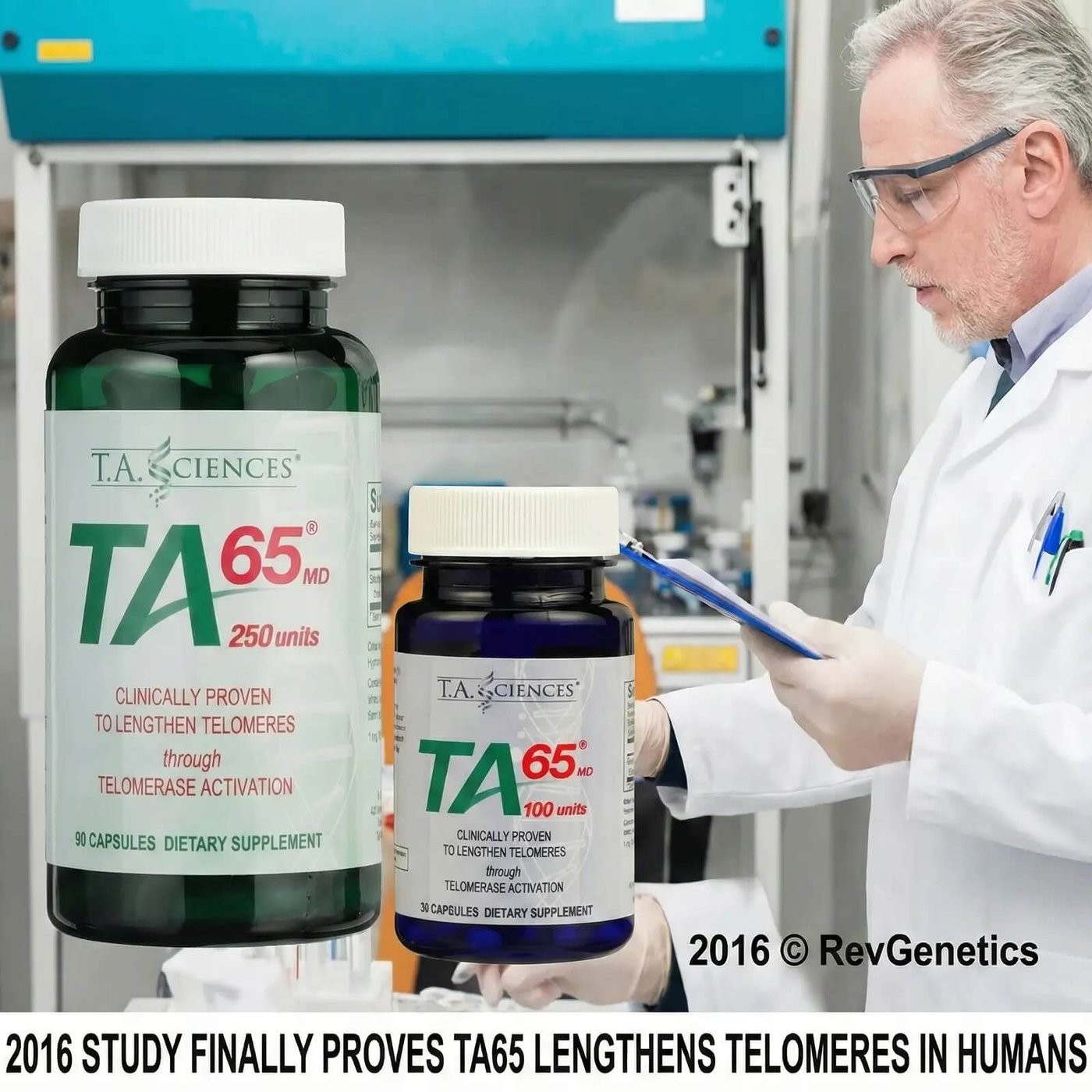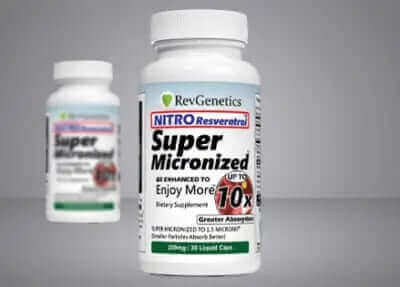Telomere Health Guide: How to Maintain Telomere Length for Longevity and Cellular Health
Understanding telomere health represents one of the most significant breakthroughs in longevity science, offering unprecedented insights into cellular aging and providing actionable strategies for extending healthspan. Telomeres, the protective DNA-protein structures at the ends of chromosomes, serve as biological clocks that determine how rapidly our cells age and ultimately influence our overall health trajectory and lifespan potential.
The revolutionary discovery that telomere length can be influenced through lifestyle choices has transformed how we approach healthy aging and disease prevention. Rather than accepting cellular aging as inevitable, we now have evidence-based methods for maintaining and potentially lengthening these crucial protective structures, offering hope for extending not just lifespan but also the quality of years we live.
This comprehensive guide explores the science behind telomere health, practical strategies for maintaining optimal telomere length, the importance of telomere testing, and evidence-based interventions that can support cellular longevity. Whether you're seeking to understand your current cellular age or implement proven strategies for healthy aging, this resource provides the knowledge and tools needed to optimize your telomere health for maximum longevity benefits.
Understanding Telomeres: The Key to Cellular Aging
Telomeres function as protective caps at the ends of chromosomes, similar to the plastic tips on shoelaces that prevent fraying. These remarkable structures consist of DNA sequences and protective proteins called shelterin that safeguard the genetic material within our chromosomes during cell division. Every time a cell divides, telomeres naturally shorten, eventually reaching a critical length that signals the cell to stop dividing or die.
The length and health of your telomeres provide crucial information about how rapidly your cells are aging compared to your chronological age. Under ideal circumstances, telomeres remain robust and healthy, enabling them to protect against cellular damage and maintain optimal function throughout your lifespan. However, various factors can accelerate telomere shortening, leading to premature cellular aging and increased disease risk.
What makes telomere research so compelling is the direct correlation between telomere length and health outcomes. Individuals with longer telomeres typically experience better cardiovascular health, enhanced immune function, reduced cancer risk, and greater longevity. Conversely, shortened telomeres are associated with increased susceptibility to age-related diseases, compromised cellular function, and accelerated aging processes.
The protective proteins within telomeres, particularly the shelterin complex, play crucial roles in maintaining chromosomal integrity and preventing DNA damage. When these protective mechanisms function optimally, cells can continue dividing and regenerating effectively, supporting tissue repair, immune function, and overall vitality throughout the aging process.
What Causes Telomere Shortening and Premature Cellular Aging?
Telomere shortening occurs through both natural aging processes and accelerated damage from lifestyle and environmental factors. Understanding these causes empowers you to make informed choices that protect your cellular health and potentially slow the aging process at the most fundamental level.
Lifestyle Factors That Accelerate Telomere Shortening
Poor lifestyle choices represent the most significant controllable factors in premature telomere shortening. Sedentary behavior, chronic stress, inadequate sleep, and poor nutritional choices create a perfect storm of cellular damage that rapidly accelerates telomere loss and compromises cellular health.
Smoking stands out as one of the most destructive habits for telomere health, with research consistently showing significantly shorter telomeres in smokers compared to non-smokers. The oxidative stress and inflammation caused by tobacco use directly damage telomeric DNA and accelerate cellular aging throughout the body.
Obesity and poor nutritional choices create chronic inflammatory states that damage telomeres and impair cellular function. Diets high in processed foods, sugar, and unhealthy fats promote oxidative stress and inflammation, while diets rich in antioxidants and anti-inflammatory compounds support telomere health and cellular longevity.
Chronic stress represents another major factor in accelerated telomere shortening. When stress hormones like cortisol remain elevated for extended periods, they directly damage telomeric DNA and impair the cellular repair mechanisms needed to maintain telomere integrity.
Environmental and Biological Factors
Environmental toxins, pollution, and excessive UV radiation contribute to oxidative stress that damages telomeres and accelerates cellular aging. While some exposure is unavoidable, minimizing unnecessary exposure and supporting your body's natural detoxification processes can help protect telomere health.
Genetic factors also influence baseline telomere length and the rate of shortening, though lifestyle factors can significantly modify these genetic predispositions. Understanding your genetic background through testing can help inform personalized strategies for telomere protection and longevity optimization.
Certain medical conditions and medications can also affect telomere length, making it important to work with healthcare providers who understand the relationship between medical interventions and cellular health when developing comprehensive health optimization strategies.
The Science of Telomere Testing: Understanding Your Cellular Age
Telomere testing provides invaluable insights into your cellular aging process, offering objective measurements that can guide health optimization strategies and track the effectiveness of interventions over time. This revolutionary diagnostic tool measures the length of telomeres in your cells, providing a biological age assessment that may differ significantly from your chronological age.
How Telomere Testing Works
Modern telomere testing typically involves a simple blood draw or cheek swab that can be performed in clinical settings or through convenient at-home collection kits. The sample is then analyzed using sophisticated laboratory techniques that measure the average telomere length in your cells and compare it to population standards for your age group.
Leading laboratories like LifeLength in Madrid, Spain, offer advanced testing methods that provide detailed analysis of telomere length distribution across different cell populations. This comprehensive approach offers more nuanced insights than basic average measurements, allowing for more precise assessment of cellular health and aging patterns.
The testing process itself is straightforward and painless, making it accessible for regular monitoring and health optimization tracking. Results typically include your biological age compared to chronological age, percentile rankings compared to your age group, and recommendations for lifestyle modifications based on your specific telomere profile.
Interpreting Your Telomere Test Results
Understanding your telomere test results requires recognizing that longer telomeres generally indicate better cellular health and slower biological aging, while shorter telomeres suggest accelerated aging and increased health risks. However, the interpretation should always consider individual factors and be used as part of a comprehensive health assessment.
Annual telomere testing provides the most valuable information by tracking changes over time and evaluating the effectiveness of lifestyle interventions and health optimization strategies. This longitudinal approach allows you to see whether your efforts are successfully slowing or even reversing cellular aging processes.
The goal of telomere testing isn't to create anxiety about aging but rather to provide actionable information that empowers you to make informed decisions about your health and implement evidence-based strategies for cellular longevity and optimal aging.
Proven Strategies for Maintaining and Protecting Telomere Length
The exciting news about telomere health is that multiple evidence-based strategies can effectively maintain and potentially lengthen these crucial cellular structures. These interventions address the root causes of telomere shortening while supporting the body's natural cellular repair and regeneration processes.
Exercise and Physical Activity for Telomere Health
Regular physical activity represents one of the most powerful interventions for maintaining telomere length and supporting cellular health. Both aerobic exercise and resistance training have been shown to preserve telomeres, with moderate, consistent activity providing the greatest benefits for cellular longevity.
Research indicates that individuals who engage in regular moderate exercise have telomeres equivalent to those of people several years younger, demonstrating the profound anti-aging effects of physical activity at the cellular level. The key lies in consistency rather than intensity, with moderate daily activity providing better telomere protection than occasional intense workouts.
The cellular benefits of exercise extend beyond telomere maintenance to include improved mitochondrial function, enhanced DNA repair mechanisms, and reduced inflammation - all factors that support healthy aging and longevity. This makes regular physical activity an essential component of any comprehensive telomere health strategy.
Nutritional Strategies for Telomere Protection
Diet plays a crucial role in telomere health, with certain foods and nutrients providing specific protection against telomere shortening while supporting cellular repair and regeneration. A telomere-protective diet emphasizes antioxidant-rich foods that combat oxidative stress and inflammation.
Foods particularly beneficial for telomere health include:
- Berries: Blueberries, blackberries, and strawberries provide anthocyanins and vitamin C that protect against oxidative damage
- Leafy Greens: Kale, spinach, and other dark leafy vegetables supply folate and antioxidants crucial for DNA protection
- Colorful Vegetables: Red peppers, carrots, and tomatoes provide carotenoids and vitamin C for cellular protection
- Nuts and Seeds: Provide vitamin E, healthy fats, and minerals that support cellular health
- Fatty Fish: Omega-3 fatty acids reduce inflammation and support cellular membrane health
- Green Tea: Contains EGCG and other polyphenols with potent antioxidant properties
- Dark Chocolate: High-quality dark chocolate provides flavonoids that support vascular and cellular health
The Mediterranean diet pattern, rich in these telomere-protective foods, has been consistently associated with longer telomeres and better health outcomes across multiple studies, making it an excellent template for telomere-supportive nutrition.
Stress Management and Sleep Optimization
Chronic stress represents one of the most damaging factors for telomere health, making effective stress management essential for cellular longevity. Practices like meditation, yoga, deep breathing exercises, and mindfulness training have been shown to preserve telomeres and even promote lengthening in some cases.
Quality sleep is equally important for telomere health, as this is when many cellular repair processes occur most efficiently. Aiming for 7-9 hours of restorative sleep nightly supports optimal telomere maintenance and cellular regeneration.
The relationship between stress, sleep, and telomere health creates a positive feedback loop where improvements in one area support the others, making comprehensive lifestyle approaches more effective than isolated interventions for cellular health optimization.
Advanced Interventions and Supplements for Telomere Support
While lifestyle factors remain the foundation of telomere health, targeted supplements and advanced interventions can provide additional support for cellular longevity and healthy aging. These approaches work best when combined with comprehensive lifestyle optimization rather than as standalone solutions.
Telomerase Activators and Supportive Compounds
Certain supplements have shown promise for supporting telomere health and cellular longevity. These include compounds that may activate telomerase, the enzyme responsible for maintaining telomere length, as well as nutrients that support the cellular processes involved in telomere maintenance.
TA-65, a natural compound derived from the Astragalus plant, has been studied for its potential telomerase-activating properties. RevGenetics offers high-quality TA-65 supplements that may help support telomere length and overall cellular health when combined with healthy lifestyle practices.
Other supportive compounds include antioxidants like vitamin C and vitamin E, omega-3 fatty acids, and polyphenol-rich extracts that provide cellular protection and support the body's natural telomere maintenance mechanisms.
Monitoring and Optimization Strategies
Regular monitoring through telomere testing allows for personalized optimization of interventions based on individual response and progress. This data-driven approach enables fine-tuning of lifestyle factors and supplementation protocols for maximum effectiveness.
Working with healthcare providers experienced in longevity medicine and telomere health can provide valuable guidance for developing comprehensive strategies that address individual needs and health goals while ensuring safety and effectiveness of all interventions.
The Connection Between Telomere Health and Disease Prevention
Understanding the relationship between telomere length and disease risk provides powerful motivation for implementing telomere-protective strategies as part of comprehensive health optimization and disease prevention efforts.
Shortened telomeres are associated with increased risk of cardiovascular disease, diabetes, certain cancers, and neurodegenerative conditions. Conversely, maintaining healthy telomere length appears to provide protection against these age-related diseases while supporting overall vitality and longevity.
The cellular protection provided by healthy telomeres extends beyond disease prevention to include enhanced immune function, better stress resilience, improved cognitive performance, and greater overall vitality throughout the aging process.
This makes telomere health not just about extending lifespan but about ensuring that the years you live are characterized by optimal health, vitality, and quality of life rather than decline and disease.
Creating Your Personal Telomere Health Action Plan
Developing an effective telomere health strategy requires a comprehensive approach that addresses all major factors influencing cellular aging while being sustainable and enjoyable as part of your lifestyle.
Step 1: Baseline Assessment
Begin with telomere testing to establish your baseline cellular age and identify areas for improvement. This provides objective data to guide your optimization efforts and track progress over time.
Step 2: Lifestyle Foundation
Implement the core lifestyle factors that support telomere health: regular moderate exercise, stress management practices, optimal sleep hygiene, and a nutrient-dense diet rich in antioxidants and anti-inflammatory compounds.
Step 3: Environmental Optimization
Minimize exposure to toxins, manage stress effectively, and create an environment that supports healthy aging and cellular regeneration.
Step 4: Targeted Supplementation
Consider evidence-based supplements that may support telomere health, working with knowledgeable healthcare providers to develop safe and effective protocols.
Step 5: Monitoring and Adjustment
Use regular telomere testing and health assessments to track progress and adjust your approach based on results and changing needs.
Frequently Asked Questions About Telomere Health
What are telomeres and why are they important for health?
Telomeres are protective DNA-protein structures at the end of chromosomes that safeguard genetic material during cell division. They're crucial for health because they determine cellular aging rate and overall longevity. Healthy telomeres protect against age-related diseases, cancer, and premature cellular death.
How can I naturally maintain my telomere length?
You can maintain telomere length through regular exercise, stress management, adequate sleep, healthy nutrition rich in antioxidants, avoiding smoking, maintaining healthy weight, and consuming foods high in polyphenols, vitamin C, and anthocyanins like blueberries, kale, and dark chocolate.
What causes telomeres to shorten prematurely?
Telomeres shorten prematurely due to chronic stress, poor diet, sedentary lifestyle, smoking, obesity, excessive alcohol consumption, lack of sleep, and exposure to environmental toxins. These factors accelerate cellular aging and increase disease risk.
How does telomere testing work?
Telomere testing typically involves a simple blood draw or cheek swab that measures the length of telomeres in your cells. The sample is analyzed in specialized laboratories using advanced techniques to determine your cellular age compared to your chronological age.
Can supplements help maintain telomere length?
Certain supplements may support telomere health, including those containing telomerase activators, antioxidants like vitamin C and E, omega-3 fatty acids, and compounds like TA-65. However, lifestyle factors remain the most important for telomere maintenance.
How often should I get telomere testing done?
Annual telomere testing is recommended for tracking changes over time and evaluating the effectiveness of lifestyle interventions. This allows you to monitor progress and adjust your health strategies based on objective cellular aging markers.
What foods are best for telomere health?
Foods rich in antioxidants, polyphenols, and anti-inflammatory compounds support telomere health. Include blueberries, leafy greens, nuts, seeds, fatty fish, colorful vegetables, green tea, and dark chocolate in your diet for optimal telomere protection.
Does exercise affect telomere length?
Yes, regular moderate exercise has been shown to maintain and even lengthen telomeres. Both aerobic exercise and resistance training provide benefits, while excessive high-intensity exercise may have negative effects. Consistency is key for telomere health.
Can stress management improve telomere length?
Effective stress management through meditation, yoga, deep breathing, and other relaxation techniques can help maintain telomere length. Chronic stress accelerates telomere shortening, while stress reduction practices can slow this process.
Are there any side effects to telomere-supporting interventions?
Natural telomere-supporting interventions like diet, exercise, and stress management are generally safe. Some supplements may have side effects, so it's important to consult healthcare providers before starting any telomere support program, especially if you have existing health conditions.
The Future of Telomere Research and Longevity Medicine
The field of telomere research continues advancing rapidly, with new discoveries regularly expanding our understanding of cellular aging and potential interventions for extending healthspan and lifespan. Emerging research areas include precision medicine approaches based on individual telomere profiles, advanced telomerase activation strategies, and combination therapies that target multiple aspects of aging simultaneously.
As our understanding deepens, we can expect more sophisticated and targeted approaches to telomere health that take into account individual genetic variations, lifestyle factors, and health goals. This personalized approach to cellular longevity represents the future of preventive medicine and healthy aging strategies.
The integration of telomere testing with other biomarkers of aging and health provides increasingly comprehensive pictures of biological age and optimal intervention strategies. This systems approach to longevity medicine offers unprecedented opportunities for extending not just lifespan but healthspan - the years of life spent in good health and vitality.
Your Journey to Optimal Telomere Health Starts Now
Understanding and optimizing telomere health represents one of the most powerful strategies available for healthy aging and longevity enhancement. The combination of evidence-based lifestyle practices, targeted supplementation, and regular monitoring provides a comprehensive approach to cellular health that can transform your aging trajectory.
The journey begins with education and assessment, progresses through implementation of telomere-protective strategies, and continues with ongoing optimization based on results and emerging research. Every positive change you make today can contribute to better cellular health and increased longevity benefits.
RevGenetics remains committed to supporting your telomere health journey through high-quality supplements and educational resources. For more information about telomere-supporting interventions, explore their comprehensive resources on TA-65, TA-65 side effects, and TA-65 reviews to make informed decisions about your cellular health optimization strategy.
The future of healthy aging lies in understanding and supporting the fundamental mechanisms of cellular health. Telomere optimization offers a scientifically-grounded path toward extending healthspan, reducing disease risk, and maintaining vitality throughout the aging process. Your investment in telomere health today can pay dividends in improved health and longevity for decades to come.
References:
- https://www.sciencedirect.com/science/article/pii/S0092867405012304
- https://www.science.org/doi/full/10.1126/science.332.6028.414






